Jump to: Reading | Traveling | Running | Working
The year is ending so it’s time to look back. 2019 has been an intense year and overall I’m happy with what it brought. I’m definitely happy with where I’m ending it, up in the Pyrenees, close to the Aigüestortes i Estany de Sant Maurici National Park.
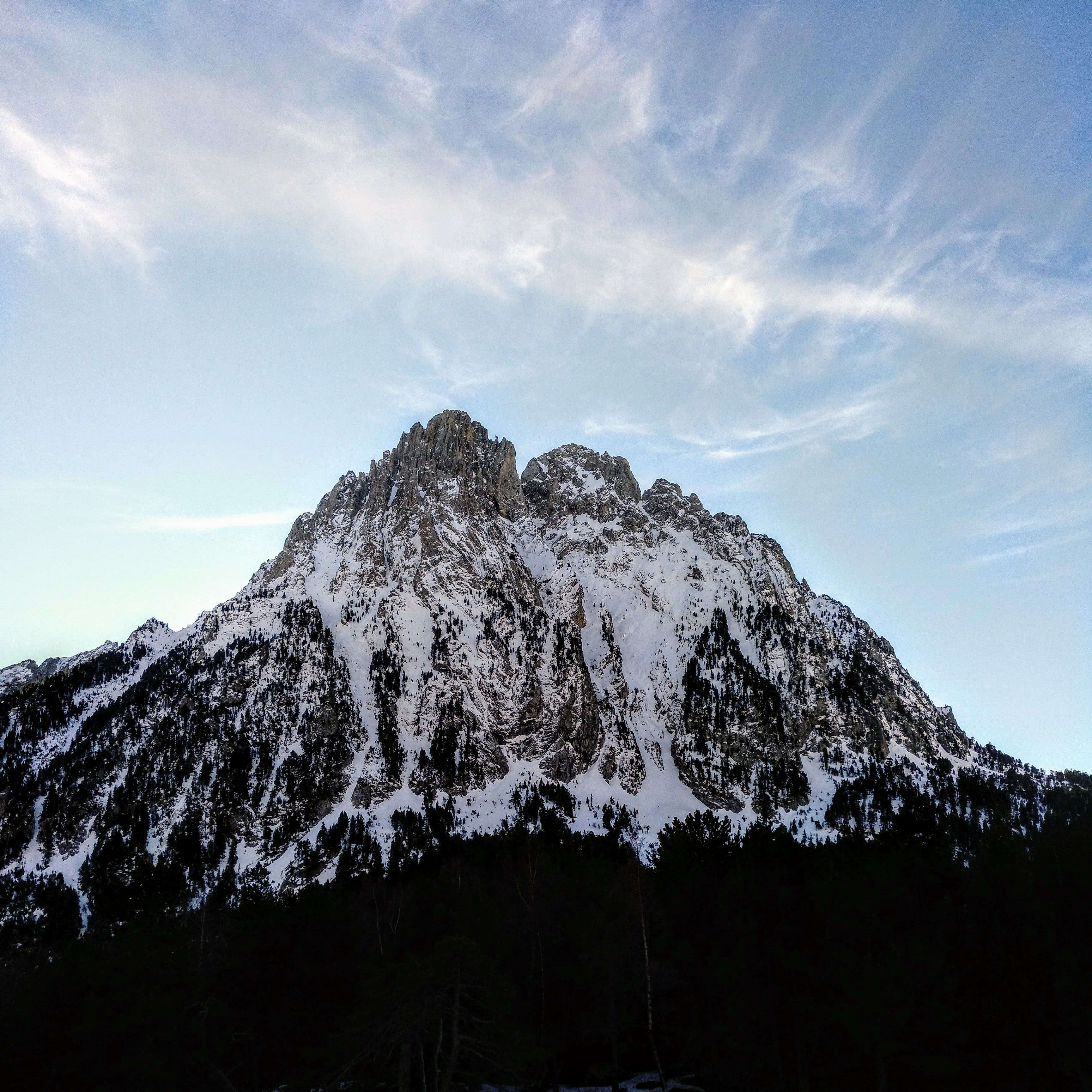
It has been the second full year since we moved back to Tarragona from the UK and we have fully settled to the rhythms of the place. A while ago I made peace with the fact that raising two small kids would essentially mean having to park some aspects of your life for a while, or at least scale them down. I’m sure that is not the case for everybody but in my case the energy and time available simply don’t allow for everything so you need to prioritize. That doesn’t mean I’m living a boring or unfulfilling live at all, it’s just that you need to take things easy, and be grateful for the time you have.
Take reading for instance. I basically used to read everyday religiously, generally before going to bed, and when I finished one book I immediately started a new one. Well, that changed, and it changed fast, because in order to do that you basically need to be able to stay awake for a while, and to put it mildly that became hard to accomplish.
But everything passes, and this year I’ve been able to read more. I’ve enjoyed a couple of novels like Reservoir 13 by Jon McGregor (not as much as his first novel If Nobody Speaks of Remarkable Things though) or Trilogía de la guerra by Agustín Fernandez Mallo. You can think of Fernández Mallo as a mix of Roberto Bolaño and David Lynch on steroids. This book was quite a journey, sadly it is not available in English yet but if you can’t read Spanish and are curious about his work you can check out his Nocilla Trilogy, which is his most famous work.
Being reunited with my comics collection, I have re-read tons of old favourites that I hadn’t checked in a while: from all the Corto Maltese by Hugo Pratt to Hate by Peter Bagge, and from various Cristophe Blain series like Gus, Isaac the Pirate or Quai d’Orsay to Maakies by Tony Millionaire. From the new stuff I picked up this year perhaps my favourites have been Bad Gateway by Simon Hanselman and The Artist by Anna Haifisch.
Travel-wise, 2019 has been a quiet year:
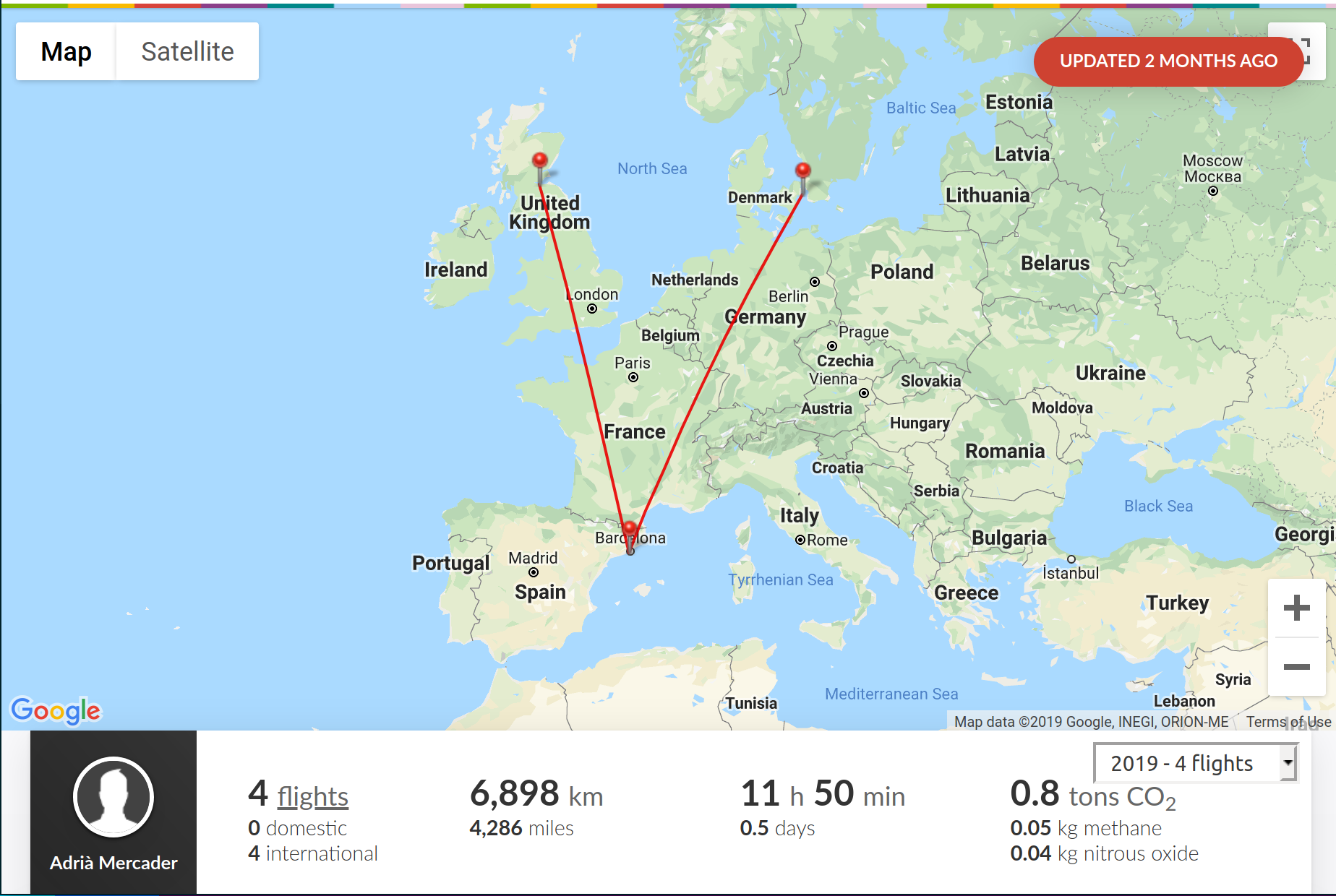
I only took two flights, one to meet my Open Knowledge Foundation colleagues for a company retreat in Scotland and another to Copenhagen for a short work trip.
Nothing like 2017:
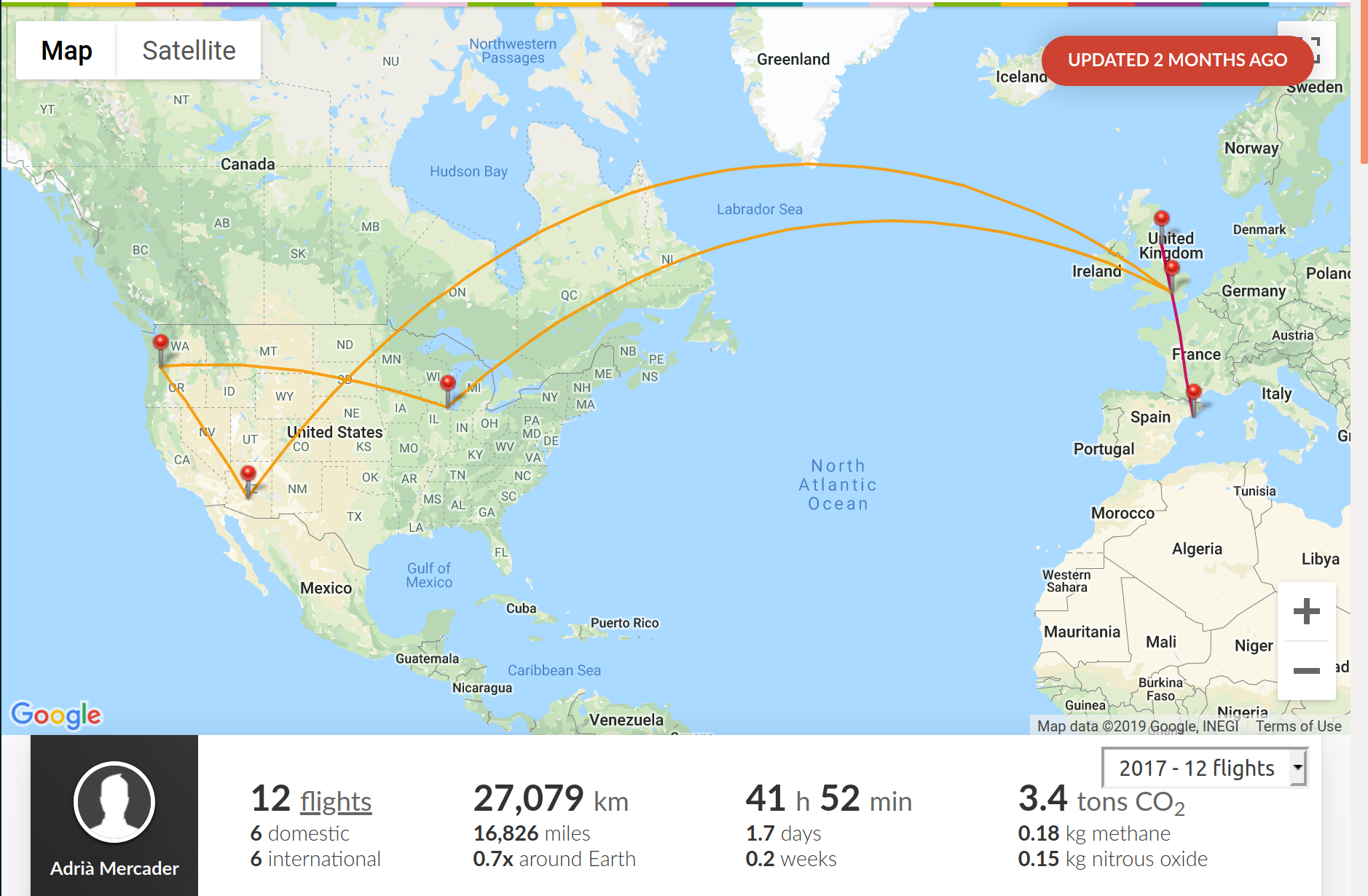
Or 2016:
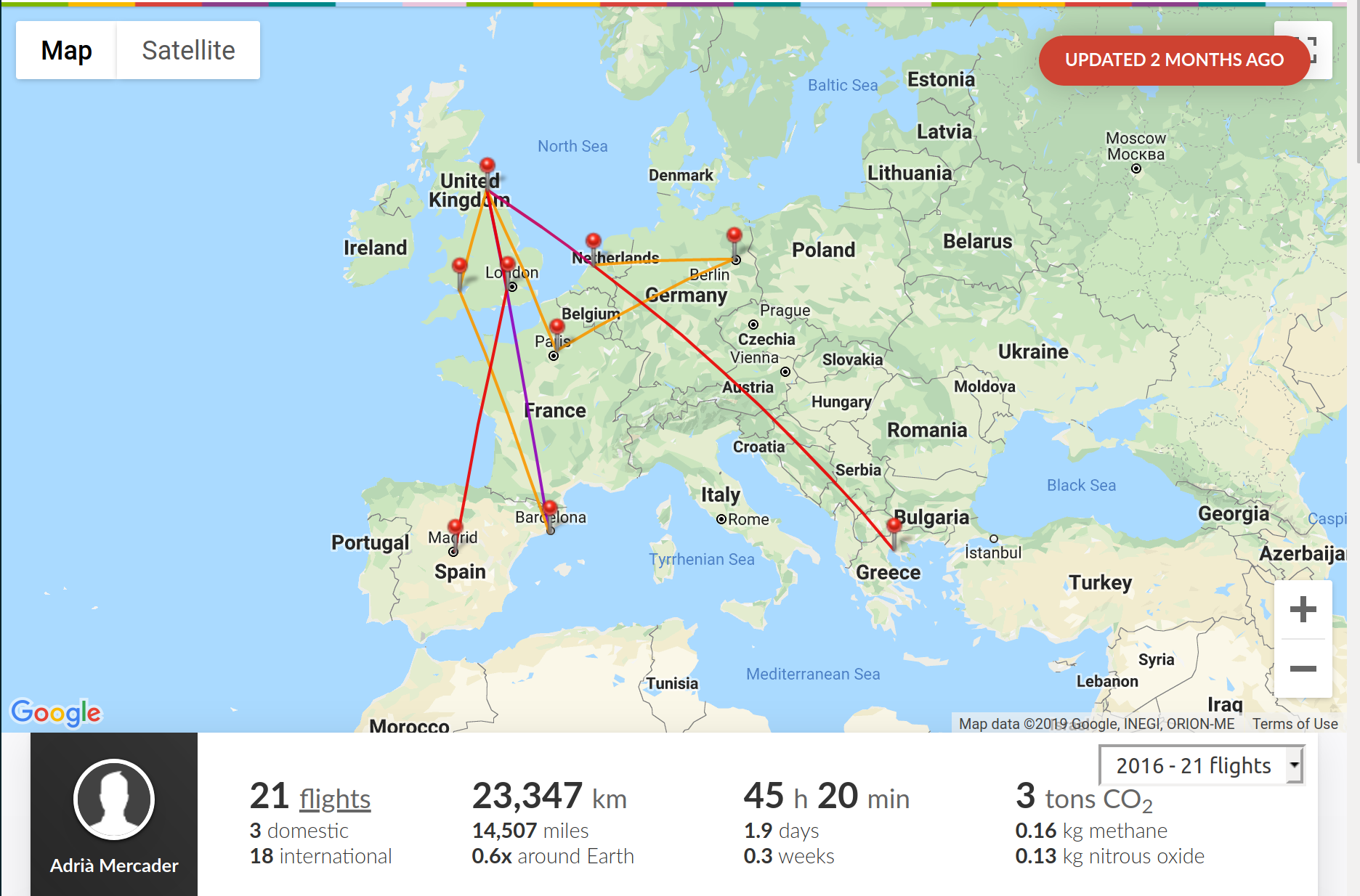
These are all from myFlightRadar24, which I use as flight logbook.
With regards to running, I can’t complain. I’m nowhere near the distances I was running back in 2016 when I was preparing for the Great North Run, but this year has definitely been an improvement from 2018, when I barely run at all.
Nowadays it’s more like a maintenance routine. I try to run two or three times a week just before starting my work day which is the only time I have available. That amounts to 25 or 30 minutes, which is not much, but enough to start the day energized. And besides, most days I get to run along the sea, which is a treat.
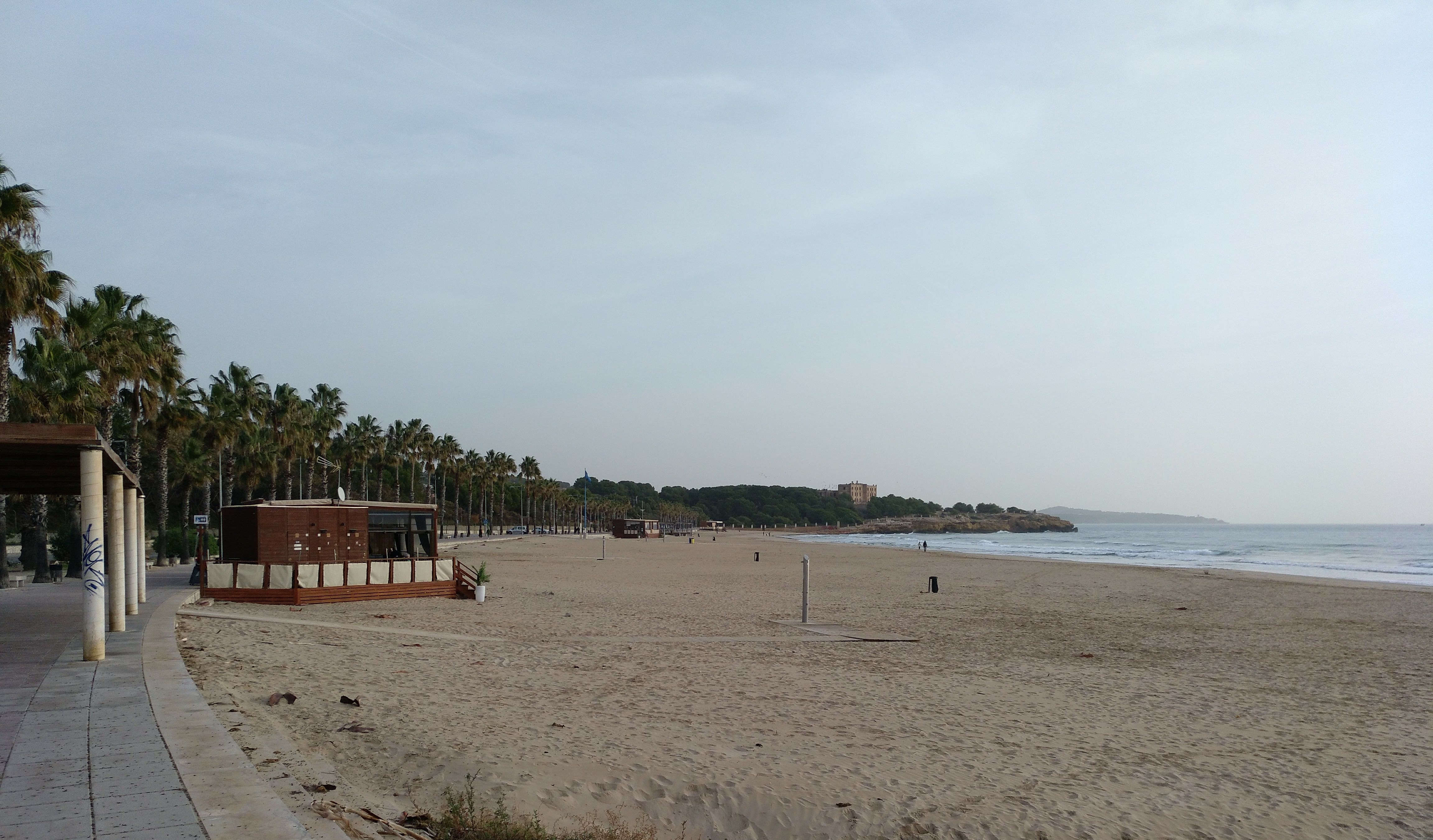
My goal for 2020 is to steadily increase the distances run and perhaps prepare for a race. A 10K around summer would be nice.
On the working front 2019 has been certainly demanding but on average quite rewarding. I’ve been taking more and more tech lead roles for increasingly bigger projects, and this has definitely meant a change in focus and skills applied. Still a lot of pushing and pulling, but also an awful lot of creating issues and reviewing pull requests. GitHub tells me I made around 1500 “contributions” this year:

It’s always nice to be able to focus on one project at a time but a small team like ours at OKF doesn’t have this luxury. Which means that for most of the year I had to keep my mind in different places simultaneously. There have been big multi-year long projects and smaller ones in scope. Of the latter perhaps the most remarkable was the intial deployment of the Government of Honduras Open Data Portal, with a big component of training for the team there.
But the ones that have taken most of my time are actually two internal data catalogues, one for UNHCR and one for the Bill and Melinda Gates Foundation. As they are internal there are actually no links to share I’m afraid, but hopefully some of the data hosted there can find its way as Open Data in the future.
The UNHCR one is called RIDL (Raw Internal Data Library) and hosts a variety of datasets generated all across the agency. It’s a project that started almost two years ago and I’m really happy with what has been accomplished so far and our work with the UNHCR team. I was lucky to be invited to a workshop with different teams involved in UNHCR applications and infrastructure and learn more about their work in person. Really looking forward to the work we have lined up for 2020 on this project.
The Gates Foundation Data Exchange is perhaps the biggest project I’ve ever worked on in terms of team size, both on the Gates Foundation end and ours. We took over from another contractor at the beginning of the year and have been doing big developments in many different fronts. I’m really happy with the work delivered by the dev team, most of whom did not have CKAN experience when they joined the project. I’ve managed to abstract some of the work delivered as standalone extensions, like ckanext-resourcesfilter for instances with datasets with lots of resources. But the biggest one was ckanext-collaborators, which brings dataset-level permissions to CKAN, something that has been missing for a long time and that I hope we can get ported upstream for the upcoming release.
And that brings me to the other big project that has kept me busy in 2019 (and will still keep me for a bit on 2020). It is the CKAN migration to support Python 3. I’ll definitely cover it in more detail in a separate post or series at some point because it is an odyssey that warrants its own telling but we are thankfully in its latest stages. As it is often the case in the CKAN world with big tasks like this, it took a while to pick up speed but during the whole year we have managed to keep grinding on, with an uptick in contributions in December, which has brought us closer to the end goal. Special shoutouts to my tech team colleagues David Read and Sergey Motornyuk for big contributions that have helped move the effort forward. It has been challenging to monitor and coordinate all fronts involved on this but it looks like it’s coming together. Keep posted for more CKAN on Python 3 news.